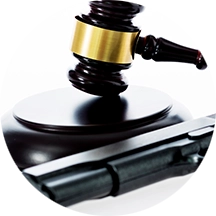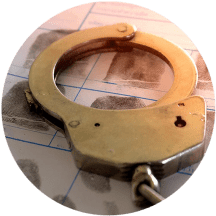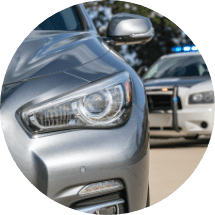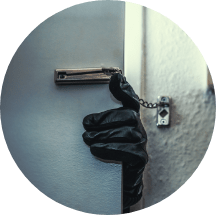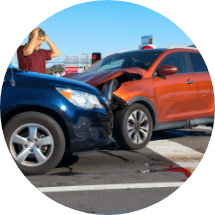Why Do I Need An Experienced DUI Attorney?
In addition to potential jail time and court fines, conviction on DUI or DWI charges could impact your career, security clearance and insurance costs. The stakes are too high in these cases for you to go it alone—you need representation by experienced DUI attorneys.
What Constitutes DUI or DWI Drunk Driving in Virginia?
For Virginia residents, or anyone driving in Virginia, what exactly constitutes drinking and driving as a criminal offense?
First things first: if you have consumed any alcohol and need to get to another location, find a designated driver! There are services in almost every locality to give you a sober ride from a restaurant bar, your office or another person’s home; so, if you don’t have someone you know volunteering to be the designated driver, at a minimum call a cab. Unless you are under 21, Virginia’s law against drinking and driving is not zero tolerance—meaning it does not outlaw adults driving after having consumed a single drink. However, it is just prudent practice not to drive after drinking.
But what does Virginia law say about getting behind the wheel after a few drinks? Virginia Code Section 18.2-266 prohibits “driving while intoxicated,” known by the shorthand “DWI.” Like all states, Virginia measures Driving Under the Influence by blood alcohol concentration (BAC), which is the amount of alcohol in an offender’s blood or breath as determined by chemical analysis. Code Section 18.2-266 makes it a crime to drive in Virginia with a BAC of 0.08 or higher. Other Virginia Code Sections establish lower legal limits for two special categories of driver: a limit of 0.02 for any driver under age 21 and a limit of 0.04 for any driver with a commercial driver’s license (CDL).
In Virginia, DWI is commonly interchanged with the acronym “DUI,” short for “driving under the influence.” That phrase comes from the text of the law, which states that “[i]t shall be unlawful for any person to drive or operate any motor vehicle… while such person is under the influence…” of alcohol, drugs or some combination of the two. The law creates a presumption that, at a 0.08 BAC or higher, a driver is presumed to be “under the influence.” In most circumstances, DWI and DUI can be used interchangeably in referring to a drunk driving charge in Virginia. They usually mean the same thing: a violation of Virginia Code Section 18.2-266.
However, there are circumstances where a person could be found guilty of DWI without being “under the influence.” For example, a person who exhibits significant outward effects of alcohol consumption, fails field sobriety tests and the like, but submits a breath or blood sample that reflects a BAC lower than 0.08 can be convicted of DWI—although you would not necessarily say that the person was driving under the influence.
What Does the Government Have to Prove For a Conviction?
The first thing the government must prove for any DWI conviction is that the defendant drove or operated a motor vehicle. After that, the government must prove that one of five factors in Virginia Code Section 18.2-266 were met. Two of those five factors deal with specific blood alcohol concentrations; two address driving under the influence of drugs, or a combination of drugs and alcohol; and the final factor sets limits for concentrations of certain drugs in the blood.
“Driving or Operating a Motor Vehicle”
What does it mean to “to drive or operate any motor vehicle” in Virginia? The term “motor vehicle” is broadly defined, to include motorcycles and mopeds in addition to cars, trucks and SUVs, (it can even include lawn tractors). “Operating” has been defined by our courts as engaging the electronic systems of the vehicle; in other words, putting the key in the ignition. You can be completely parked with the engine off, but if the keys are in the ignition, even in the off position, you may be deemed to be operating the motor vehicle. You may not even be in your car when you are investigated and charged with DWI, but if a witness can place you behind the wheel, or you admit that you had recently driven a vehicle, the element of driving or operating could be satisfied.
DWI Based on Blood Alcohol Concentration: Breath & Blood Tests
As stated above, two of the five factors listed in Code Section 18.2-266 make it a crime to drive in Virginia with specific blood alcohol concentrations of alcohol or other intoxicants. Subsections (i) and (v) of Code Section 18.2-266 prohibit driving with concentration levels of 0.08 or above for alcohol, and above minute milligram amounts of narcotic drugs like cocaine, PCP or methamphetamines.
Virginia has two breath tests for determining levels of alcohol or these other drugs in the blood. Many law enforcement agencies have a procedure for administering a preliminary breath test, or PBT, using a device called the Alco-sensor. This test is usually administrated at the place of the stop prior to making an official arrest. There is no legal requirement to agree to the test; in fact, the results are not admissible in court. It is simply used as an additional basis for probable cause to make an arrest. You may refuse to submit to this roadside breath test, but if you do there is a strong likelihood that the officer will place you under arrest. Although, of course, this may also prevent the government from obtaining evidence against you.
The second test, administered at a jail, police station, sheriff’s office, or some other location depending on the jurisdiction, is the required breath test. This test invokes Virginia’s “implied consent” law, found at Virginia Code Section18.2-268.2. In exchange for the privilege to drive on Virginia’s highways, every person who operates a motor vehicle in Virginia is deemed to have agreed, upon an arrest for DWI, to have breath or blood samples taken to determine alcohol or drug content. The samples must be taken within three hours of the arrest. Prior to taking the breath sample using a machine called the Intox EC/IR II, a law enforcement officer will read the driver a form detailing the implied consent law and explaining that legal consequences exist for refusing to submit the sample.
Virginia Code Section18.2-268.3 lists the penalties for unreasonably refusing to provide a breath or blood sample: a first offense is simply a civil (not a criminal) offense, with the loss of driving privilege as the consequence. Subsequent offenses, or first refusal offenses with prior DWI convictions, become misdemeanors.
The breath test, or blood test where blood is drawn and tested in a lab, results in a certificate of analysis that reflects the concentration of alcohol or drugs in the driver’s system. Proving that driving occurred on a highway or that the sample was taken within three hours of the arrest become factors for the introduction of the documents into evidence.
DUI Based on Impaired Driving: Sobriety Tests
The remaining three factors listed in Code Section 18.2-266—subsections (ii), (iii) and (iv)—make it a crime to drive in Virginia while “under the influence of” alcohol or drugs, or the combination of both, which impair the driver’s “ability to drive or operate [the vehicle] safely.” Even if there is no BAC level to introduce into evidence, a conviction for DWI can be made by circumstantial evidence of the driver (a) being under the influence and (b) having an impaired ability to safely drive or operate a vehicle.
Certain kinds of driving behavior are usually the first indicators of a driver’s impaired ability: weaving, swerving, drifting, or other kinds of erratic driving are most common. Other indicators may be observed once the stop is made: presence of the odor of alcohol, bloodshot or glassy eyes, slurred speech, ability to follow the officer’s instructions, etc. Where the officer asks the driver to step out of the vehicle, additional indicators may become immediately observable: the manner in which the driver steps out or may need assistance in standing upright, the driver’s gait when walking, and whether any odor of alcohol follows the driver out of the vehicle.
The law enforcement officer may also ask the driver to perform field sobriety tests. Virginia law enforcement officers use many different tests, but only three Standardized Field Sobriety Tests have been determined to demonstrate reliability by the National Highway Traffic Safety Administration: (a) Horizontal Gaze Nystagmus, (b) one leg stand and (c) walk and turn. Each of these tests are designed to reveal certain “clues” that add up to a determination that a person is under the influence.
Finally, an officer can (and will) ask the driver if he or she has been drinking, and the driver’s answer can later be used against him or her in court.
What Should You Do If You Are Pulled Over?
If you find yourself pulled over on suspicion of drunk driving, remember these three things:
- Don’t answer any questions! The officer may ask you what you have had to drink, how much you’ve had to drink, when you had your last drink, etc. The officer is looking for you to incriminate yourself, but also just wants you to talk so that he or she can judge whether you are slurring your speech. You do not have to answer any questions about your drinking, or much of anything else. Simply exercise your right to remain silent! This may upset the officer, and the officer may tell you that things will be more difficult if you don’t respond; however, it is your constitutional right to refuse to say anything that might incriminate you.
- Don’t take any field sobriety tests! Again, you have a right to refuse these on the ground that they might incriminate you.
- Breath and blood tests. As stated above, you may also refuse to submit to a road side breath test. This will greatly increase the chances that the officer will place you under arrest—although it may also prevent the government from obtaining evidence against you. If you are arrested, refusal of the breathalyzer or blood test at the police station will violate Virginia’s “implied consent” law, which will subject you to the penalties listed in Code Section 18.2-268.3 (described above).
What are the Punishments for a DUI or DWI?
Convictions for DWI begin as Class 1 Misdemeanors, meaning up to twelve months in jail and a $2,500 fine. A one-year license suspension and completion of the Virginia Alcohol Safety Action Program are also mandatory even for first offenses. In certain cases, Virginia law requires installation of an interlock ignition device; this now includes, for a minimum of six months, first offense DWI convictions where the court grants a restricted driver’s license. Elevated BAC levels (0.15 or higher) and second or subsequent offenses all carry mandatory jail sentences, fines and longer license suspensions. As of July 1, 2013, any third DWI conviction, regardless of the date of the prior two, becomes a felony offense, carrying up to 5 years of incarceration as a punishment.
Conclusion
Please be safe and don’t drive after drinking. If, however, you find yourself facing a drunk driving charge in Virginia, consult with an experienced DUI lawyer as soon as possible. The stakes are too high, and the law too complex, for you to go it alone.

